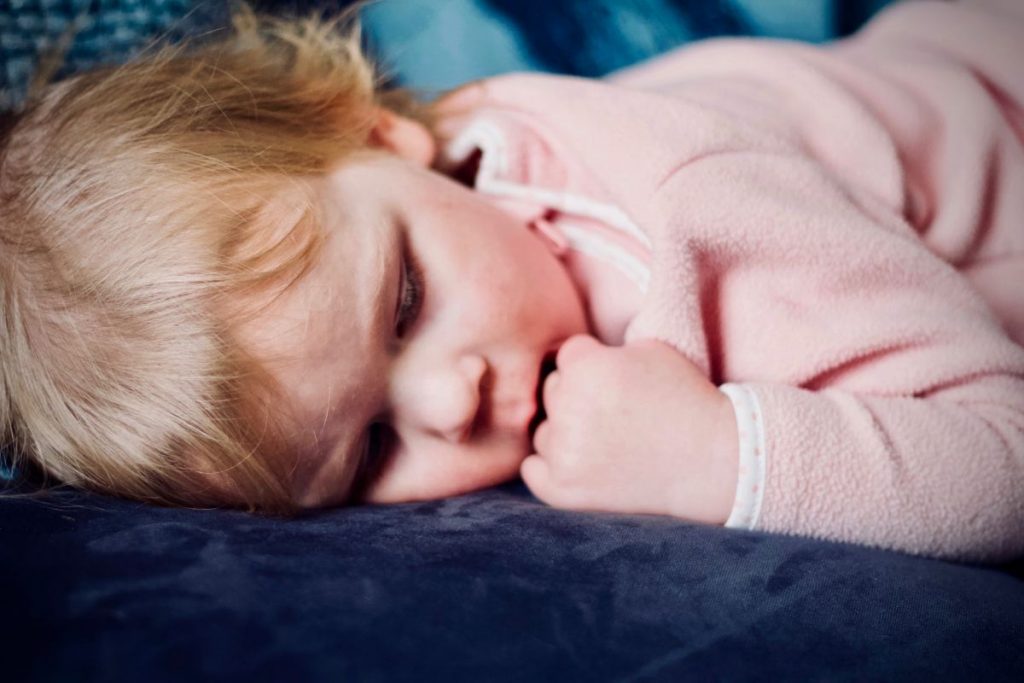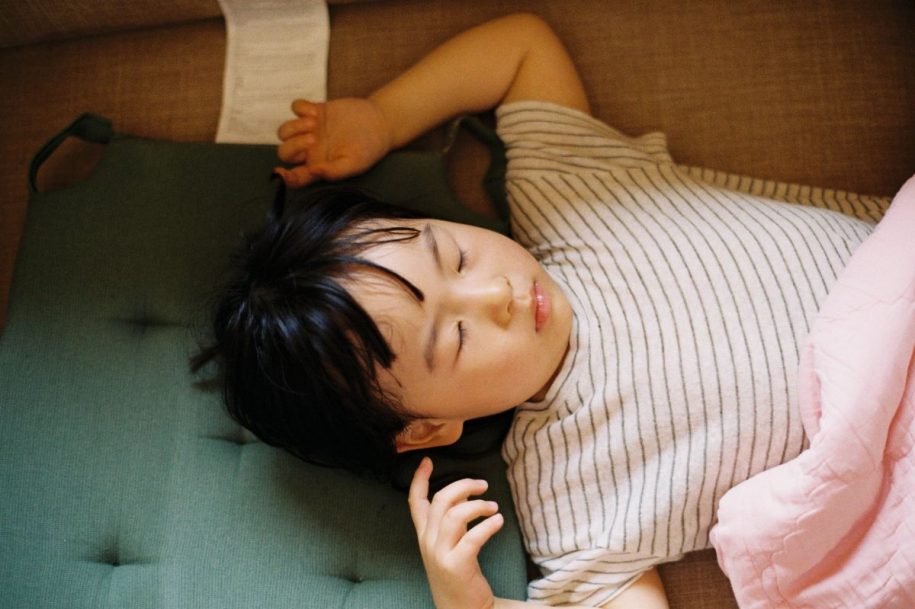How to help your child get a good night’s sleep
By Allison Riehs | Naturopath
Parents know all too well the difference a good night’s sleep can have on a child’s moods.
Going to bed too late, getting up too early, or waking up throughout the night can cause havoc on their energy levels, behaviour, concentration and coping mechanisms, not to mention – disrupt the entire household.
But that’s not all.
Sleep is critical to brain development, digestion, learning, mental health, physical wellbeing, gut health… and the list goes on.
When children aren’t getting enough sleep, other aspects of their health suffer too, and it can create a vicious cycle with unpleasant outcomes for the whole family.
The good news is, there are some simple steps we can take to support healthy sleep for children – even the most determined to stay up past ‘bedtime’.
How much sleep should children be getting?
The Sleep Health Foundation recommends the following sleep periods as a guide for children’s sleep schedules, depending on their age:
0 – 3 months | Optimal: 14 – 17 hours | Appropriate: 11 – 19 hours
4 – 11 months | Optimal: 12 – 15 hours | Appropriate: 10 – 18 hours
1 – 2 years | Optimal: 11 – 14 hours | Appropriate: 9 – 16 hours
3 – 5 years | Optimal: 10 – 13 hours | Appropriate: 8 – 14 hours
6 – 13 years | Optimal: 9 – 11 hours | Appropriate: 7 – 12 hours
14 – 17 years | Optimal: 8 – 10 hours | Appropriate: 7 – 11 hours
The Sleep Health Foundation
These sleep periods can be taken as multiple blocks of sleep throughout the day, such as a combination of naps and a longer overnight sleep. This is most relevant for children under 5.
Why is sleep so important?
The reasons for sleeping extend well beyond just not feeling tired.
Research has found sleep plays an essential role in alertness and attention, cognitive performance, mood regulation, resilience, vocabulary acquisition, learning and memory.
In infants and toddlers, sleep and napping is essential for growth, brain development, memory consolidation, and motor skill development.
Poor sleep in early childhood has also been linked to health complications in later life, including allergic rhinitis, anxiety, depression, obesity, diabetes, high blood pressure and immune disorders.

How can I support my child to get a good night’s sleep?
Stimulation: Children of all ages need to be active and stimulated during their waking hours, in order to support restful sleep. What this looks like for your child will depend on their age and developmental stage. Infants only require simple interaction like eye contact, cuddles, light massage, making playful noises and faces with them, and letting them reach for a mobile or soft toy, whereas toddlers and older children require both physical activity, mental stimulation and social engagement to prime the brain for sleep. Where possible, it’s best to do high energy activities in the morning, including getting outdoors for sunlight exposure to support Vitamin D levels, before gradually tapering off into quieter activities in the afternoon. Keep in mind, children are even more sensitive to light-induced melatonin suppression, so screens and lights should be kept to a minimum in the evening to support sleep.
Schedule: You probably know yourself, if you stay up late one night, you find it harder to wake up early the next morning. When our sleep schedule is thrown off, we not only feel bad, but sleep disruption is detrimental to our health. By setting up a sleep schedule for your child, and sticking to it, you are supporting their body’s natural circadian rhythm, and also creating stability. When children know what to expect from their daily routine, they have less anxiety and feel more calm and more easily able to drift off to sleep.
Relaxation: As well as providing adequate physical activity and mental stimulation, relaxation through mindfulness and meditation has proven to be just as effective at improving sleep quality as other conventional sleep treatments, without the use of pharmaceuticals. Preschools are increasingly integrating yoga, meditation and mindfulness activities for children, and you can find classes in your local area, or do them at home using videos and guides online.
Nutrition: The foods we eat affect our blood glucose levels, and consequently our brain activity and sleep-wake cycles. Foods high in refined carbohydrates and added sugars, as well as those with preservatives, and artificial colours and flavours, have been associated with hyperactive behaviour and sleep disruption. But as well as avoiding these foods, it’s important to ensure children are receiving adequate minerals and nutrients from wholefoods, or supplementation where necessary. Micronutrient deficiencies of vitamin B1, folate, phosphorus, magnesium, iron, zinc and selenium have been associated with short sleep duration, while low levels of calcium and vitamin C contribute to less restorative sleep, and a lack of vitamin A, selenium and calcium may cause difficulties with falling asleep. The best way to ensure your child is getting a good mix of nutrients is to ‘eat the rainbow’, with a wide range of naturally coloured wholefoods at every meal. If this isn’t possible, or you think your child might need supplemental support, you might like to consult a nutritionist or naturopath.
Sleep Environment: All children are different when it comes to their tolerance of distractions during sleep. But if your child is a light sleeper, wakes regularly, or has difficulty going to sleep, you might like to review their sleep environment. Ensure the room is dark, set a comfortable temperature, minimise outside noise as much as possible – which might mean playing music or white noise in their bedroom or sleeping area, consider a humidifier or atomiser with child-safe relaxing essential oils, and if the child is in nappies, put them to bed dry and change them if the nappy becomes wet or soiled.
Herbs: Before reaching for pharmaceutical sleep aids, parents will often look for natural sleep remedies for children. Herbs and homeopathics can provide a natural, nourishing alternative to conventional sleeping treatments. Some of the popular sleep-inducing herbs include chamomile, hops, passion flower and lemon balm. They can be served as a tea, or prepared by a naturopath as a tincture. Herbs can be potent so it’s important to consult a naturopath for support in choosing the appropriate type and dose for your child.
For personalised natural sleep support for your child, book an appointment with Allison.


